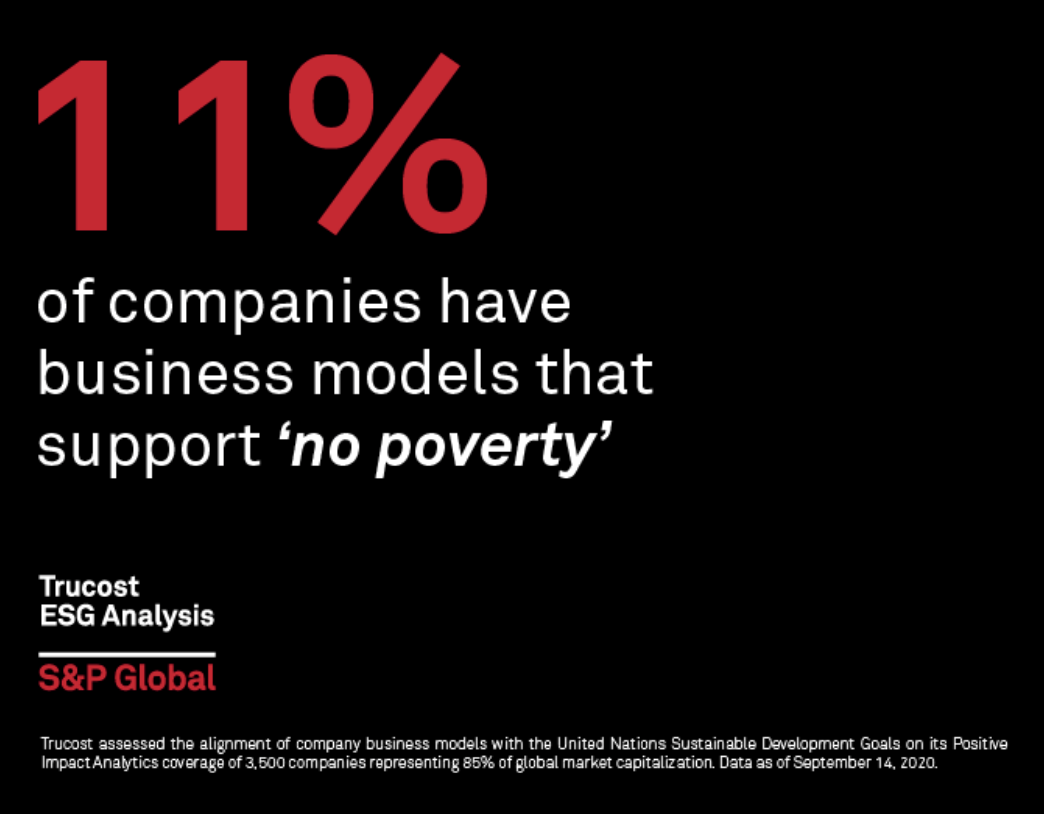Financial technology has the power to transform the environment, society, and governance, or ESG. The only way to go is by being on the same page regarding its criteria and embracing the inevitable challenges on the run.
Fitting ESG conditions (environmental, social, and governing) is becoming an increasingly necessary objective for a business that investors and customers support.
Refinitiv data indicates investor interest in sustainable assets is soaring, with a 15% increase in the last two years. Millennials accounted for 61% of the investors, while 40% of investors say they plan to make their first impact investment soon, as reported by Fidelity Charitable.
Organizations like the International Monetary Fund and Nasdaq have also demonstrated an increased interest in capital markets. Sustainable business models are expected to create $12 trillion in economic opportunities and over 400 million jobs by 2030, mainly in developing countries. Ensuring that goals lined up with sustainability are accomplished requires evaluating their fulfillment.
The evaluation will be even more precise if there is a solid technological framework, standardized measurement practices, and indicators. This is a complex issue that fintech can help solve.
Therefore, fintech is experiencing tremendous growth, and sustainable big data is becoming an authoritative “mini-industry,” or niche. KPMG's “Pulse of Fintech” report confirms that nearly 200 data companies and numerous fintech start-ups are operating worldwide.
Why ESG is important
Finance is a crucial component, and it's expected that $7 trillion a year will be required to meet the target ESG goals by 2030.
Financial institutions like investment banks and advisors are at the forefront. They have publicly acknowledged their commitment to the issue by partnering with organizations such as the UN PRI, UN SDG, and the Net Zero Asset Managers Initiative. It also offers a chance to be the green money channel and motorist for a favorable change.
Investment advisors, however, are yet to adjust to the macro shift. According to a recent study by SEI, 80% of registered investment advisors declare adding sustainable investing strategies to portfolios due to customer demand.
The Kalifa Review confirms that fintech has a vital role in ESG matters. This is mainly due to the need to acquire and process big amounts of data from numerous sources; the review suggested that fintech can use its digital potential to collect and process appropriate ESG data effectively through technology solutions.

Source: S&P Global
But the achievements in this direction have been less than impressive so far (to say the least!). Two years back, S&P Global reported that just a little over 10% of companies have business models that support “no poverty;” not much has been done since.
Below I will go through where ESG influences and opportunities for fintech might open and where fintech might move next year and beyond.
How fintech can impact ESG for good
There's ample opportunity for businesses to distinguish themselves with more thoughtful, more informed, data-driven governing by taking reliable advice and monitoring the ESG performance of their portfolios.
Business models that integrate ESG into financial management and use appropriate fintech tools are more likely to earn the trust of their clients and shareholders and set up long-term relationships. Let’s dig deeper into that.
Environment in ESG: The Green FinTech
The "E" element in the ESG– the environment– has been the center of attention for the past decade.
Environmental changes are becoming a core focus of ecological activities, and the GreenTech sector is booming right now. Many countries have made "net-zero commitments," indicating that the future of finance needs to be green– creating both challenges and opportunities.
The United Arab Emirates has recently shared a strategic initiative named Net Zero by 2050, a national campaign to reach net-zero emissions by 2050. This also makes UAE the Emirates the first MENA country to do so.
Fintech will play a crucial role in empowering green investment and development, using digital solutions to give companies tools to measure and reduce their climate effect. With fintech, businesses can provide consumers with accurate data to help them make informed decisions.
Building initiatives
Moving towards a net-zero economy will need plenty of investments in low-carbon infrastructure and services. Fintech firms are increasingly more showing up in the green finance area.
Fintech is tackling climate change by providing innovative products and services, like loans tailored for lower carbon emissions and renewable energy and rural diversification activities.
Many companies are also offering their retail customers products to support the transition. Amongst the most prominent products are savings accounts that use the interest to plant trees (to reduce carbon footprint) as an ROI and reward credit card purchases by using the fees merchants pay to buy carbon offsets.
This fintech sector is ripe for development as consumer expectations align more with the ESG vision. Fintech is fully poised to move quickly and make the most of this new market.
Transparency and reporting are also vital to green finance. Asset managers and institutional investors will increasingly count on corporates to respect their sustainability responsibilities under the Sustainability Disclosure Requirements.
Standardized data and reporting are equally important, as customers and investors expect reliable ESG data. Distributed ledger technology can also address climate changes, as it allows tracking and reporting reductions in greenhouse gas emissions along the entire supply chain, including producers, providers, and consumers.
Using blockchain technology will undoubtedly be vital in helping businesses monitor sustainable development goals. Blockchain technology is presently being used to integrate renewables into power grids to decrease costs, tackle climate change, and offer visibility and transparent information about a company's carbon footprint and those of its partners, vendors, and utilities.
This way, businesses can reduce their carbon emissions and explore ways to form a more sustainable lifecycle for their companies.
Fintech’s role in leading by example
It is not sufficient for fintech to just develop services that other companies could use to achieve ESG objectives - they need to set an example that clients and investors expect to see.
Thankfully, fintech is already inspiring a new era, with some promising to be carbon neutral by 2030. Other companies are setting similar targets, such as reducing carbon emissions from operations and supply chains by a third by 2030.
However, this is just the tip of the iceberg. The opportunities for growth and development in the green finance sector are nearly limitless, and fintech has an essential role to play.
Social in ESG: Financial inclusion and development
While much of ESG's focus in the fintech space has been on the ecological side of the issue, the rise of socially-conscious projects has grown exponentially since the pandemic's beginning. It has become just as fundamental as the environmental part of the ESG.
This element is just as broad and considers labor standards, social inclusion and diversity, data security, human rights, financial inclusion, and much more.
Financial inclusion
The development of fintech aimed at adjusting financial services and financial inclusion for previously overlooked customers is an excellent factor in the exponential rise of social value projects.

Source: Corporate Financial Institute
Advances in digital financial services had already helped communities improve financial inclusion before the pandemic. However, the process has dramatically increased recently as groups of individuals not usually considered excluded struggled to access emergency financial services and meet eligibility requirements for receiving government assistance.
The global demand for fintech services increased considerably throughout the pandemic, showing the potential to respond to changes rapidly, unhindered by legacy financial institutions.
Global Findex approximates 1.7 billion individuals worldwide to lack access to essential financial services. Low-income individuals and communities can benefit considerably from advances in mobile money, fintech services, and digital banking. Fintech has the power to help these individuals by providing access to accounts, payments systems, and micro-loans.
Fintech firms can do this remotely and in a way that challenges– not reinforces– inequalities within these communities.
Governance in ESG: A conscious decision-making
Last but certainly not least, we must discuss the governance or the “G” part of the ESG. Governance includes risk management, values, reporting standards, transparency, and anti-corruption policies, to name a few.
It wouldn't be ideal to discuss governance as a remote topic, though: the environment and social factors of an ESG are crucial to good governance and vice versa. Effective governance encourages sustainable financial performance and lowers reputational risks, creating value for shareholders.
We've already seen governance in an ESG context become more focused, but it will likely grab the spotlight in the short term.
There's an added reward to ensure excellent governance for fintech in particular– they can expect to be questioned about their ESG commitments as investors become increasingly more aware of ESG risks and look for businesses that abide by governance requirements with consumer demand.
Historically, good governance used to be seen as more of a compliance concern. Still, thanks to the introduction of ESG, conscious decision-making will be a top concern– from start-ups to the biggest companies.
Bottom line: ESG is a crucial component of TSLC’s business model
By leveraging the power of technology, large global companies, public and private, are embracing this shift towards a more sustainable economy. UK's Financial Conduct Authority (FCA) is an excellent example. As part of its Green Fintech Challenge 2021, the UK’s FCA is running a campaign in its digital sandbox to foster innovation and promote ESG-based fintech projects.
At TSLC, we also firmly believe in ESG-focused financial products and services. Our main goal is to provide low-cost and easy access to financial services for underserved populations, aiming to extend financial inclusion and economic growth.
We aim to achieve this by using our own proprietary technology that allows us to use fewer codes and not pay for licensing fees, offering affordable access to credit for our customers, thus positively impacting their lives.
Our ESG-focused approach is part of our efforts to reach our Sustainable Development Goals (SDG), which include:
- Creating ways to maximize social value creation.
- Decrease poverty and social inequality by providing fair access to credit for everyone equally.
- Lower barriers toward more sustainable job opportunities and improve overall financial health.
- Empower individuals to chase their education goals.
- Support health and well-being by providing easy and swift access to credit for life’s unexpected health-related events and dues.
- Enhance rural economies through access to financial inclusion.
- Promote gender equality through financial inclusion.
As the fintech market keeps flourishing, driven by the environmental and social challenges that need urgent solutions, innovation is key to laying the foundations for a greener and more inclusive finance and future.

 Deepak H Saluja
Deepak H Saluja






